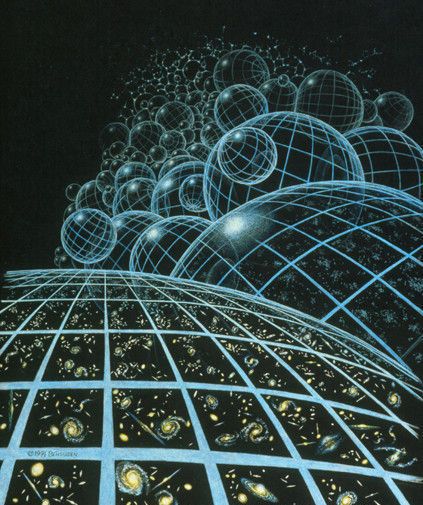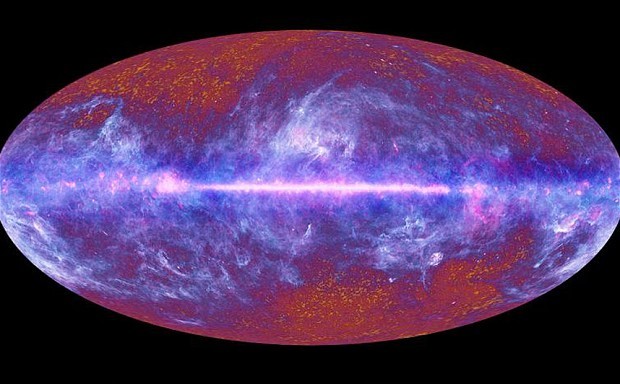A physics professor at M.I.T., Max Tegmark, made an extraordinary claim recently: “It is inappropriate to define our Hot Big Bang as the beginning of time, because we don’t know whether time actually had a beginning.” It seems that physicists, having said since Einstein that we have to think in terms of space-time, are back to dividing space from time.
 Even in terms of physical time, Tegmark’s remark attests to the fact that physicists don’t really know what time is.
Even in terms of physical time, Tegmark’s remark attests to the fact that physicists don’t really know what time is.
Why is this important? The distinction between physical time and psychological time may be the most important issue in human life. If science cannot even be clear about physical time, then how are ordinary people to get clear of psychological time?
Can we really end psychological time? As a contemplative, I experience on nearly a daily basis the ending of the time. Then again, ‘I experience’ isn’t an accurate way of putting it, since time only ends when the illusory continuity of the self ends, and that isn’t an experience at all but rather a phenomenon.
When the mind-as-thought falls silent, time as the past streaming through the present into the future ceases. Such moments or intervals of timelessness are extraordinarily pregnant with meaning, renewal and insight. They are the anchor and wellspring of my life.
Beyond a reasonable doubt (while retaining a healthy measure of doubt), I’m sure that states of timelessness are not some internally produced, self-induced idiosyncratic occurrence. They reflect a real and universal potential of the highest order available to all human beings, irrespective of religious, cultural and linguistic background.
That brings me back to the distinctly philosophical claim that “we don’t know whether time actually had a beginning.” Since finding evidence of gravity waves that produced the sudden inflation of the universe from a subatomic speck to the expanding cosmos, astrophysicists are now confident in saying that space had a beginning. But suddenly time is sacrosanct.
The reason for such intellectual shilly-shallying is clear: It’s easier to envision the beginning of space than envision the beginning of time. But after convincingly demonstrating that time cannot be separated from space, it makes no sense whatsoever to say space had a beginning but time did not. There must have been something in other dimensions before our dimension of space-time came into existence, but for all intents and purposes, physics begins and ends when the laws of physics came into being.
In short, neither time nor space are constants, or givens, but together had a beginning, and affect each other, as well as matter and energy, in inextricably relative ways. For example, the closer an object comes to the speed of light, the greater the mass it accrues, and the more that time (relative to other objects) slows down. That, as I understand it, is what Einstein proved.
How does all this pertain to psychological time? The liberation from psychological time is the great project of human existence. Muddying the issue of physical time can only add to the muddying of consciousness based on psychological time.
Since even physically, time is inseparable from space in the universe, outward time is more accurately  viewed as the unfolding of cosmic evolution, not as the fabled “arrow of time.”
viewed as the unfolding of cosmic evolution, not as the fabled “arrow of time.”
Psychologically, time is the greatest illusion, indeed the fountainhead of all illusion. Continuity as we normally experience it simply does not exist in actuality. That’s why we fear death, because we see death as the end of the continuity of the self. Death is certainly that, but it is nothing to fear.
There is no time without thought, and no thought without time. The ending in passive watchfulness of the separate observer doesn’t necessarily mean the ending of psychological time. But undirected attention without the observer opens space within, allowing the entire movement of thought to spontaneously stop, and psychological time to end.
Physical then time takes on an entirely different meaning, more like the unfolding of a flower in ‘real time,’ rather than the linear progression the ‘arrow of time’ implies. So the ending of psychological time always involves the ending of the observer as the first step.
Beyond the scientific question of time, one cannot consider the philosophical question of time without coming up against questions about death and God. It’s strange, but beauty, timelessness, death and love all go together, aspects of a single movement.
Man has come to the end of time as a means of bringing about a just, sane and balanced world. The delusion of ‘eventually’ is finished. Change does not come about through time. At best, employing time is putting off for the next generations what is the responsibility of living generations today. Besides, we’ve also run out of space.
Eternity is in a day if one knows how to look.
Martin LeFevre

